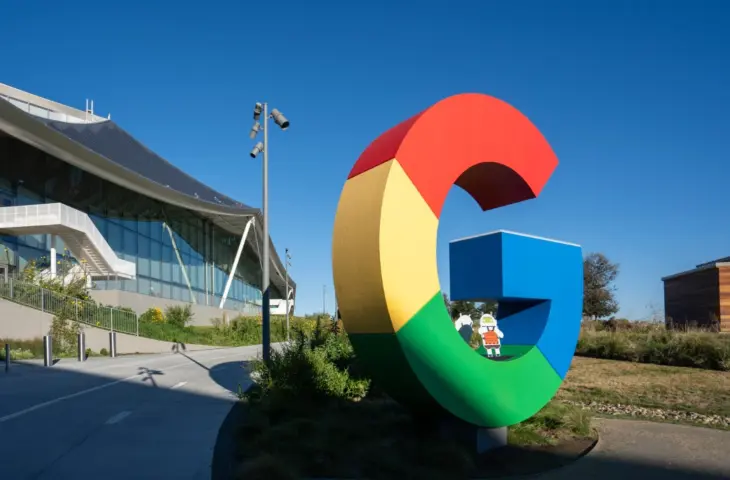Google’s Agent Payments Protocol (AP2): Pioneering the Future of AI-Driven Digital Transactions
Google’s Agent Payments Protocol (AP2): Pioneering the Future of AI-Driven Digital Transactions
By
Calder Monroe
Last updated:
September 26, 2025
First Published:
December 2, 2025

Photo: ITdaily.
In September 2025, Google introduced the Agent Payments Protocol (AP2), a groundbreaking initiative poised to redefine the landscape of digital transactions. Developed in collaboration with over 60 industry leaders, including Mastercard, PayPal, American Express, and Coinbase, AP2 aims to establish a universal framework for secure, autonomous payments facilitated by AI agents. This article delves into the intricacies of AP2, its implications for the cryptocurrency industry, and its potential to reshape the future of digital commerce.
The Genesis of AP2
The inception of AP2 stems from the growing need to accommodate AI agents acting on behalf of users in digital transactions. Traditional payment systems, designed with human users in mind, face challenges in ensuring secure and authorized transactions initiated by autonomous agents. AP2 addresses these challenges by introducing a standardized protocol that facilitates secure, verifiable, and accountable transactions between AI agents and payment systems.
Core Components of AP2
At the heart of AP2 lies the concept of "mandates"—cryptographically signed digital contracts that authorize and validate payment actions initiated by AI agents. These mandates consist of three key components:
- Intent: A declaration from the user granting permission for the AI agent to initiate a transaction.
- Cart: A detailed record of the items or services to be purchased, ensuring transparency and accuracy.
- Payment: The financial details and authorization to complete the transaction.
By leveraging these mandates, AP2 ensures that each transaction is both authorized and traceable, mitigating risks associated with unauthorized or fraudulent activities.
Interoperability Across Payment Methods
One of the standout features of AP2 is its payment-agnostic design. The protocol supports a wide array of payment methods, including traditional credit and debit cards, real-time bank transfers, and cryptocurrencies. To facilitate seamless integration with the cryptocurrency ecosystem, Google collaborated with prominent entities such as Coinbase, the Ethereum Foundation, and MetaMask to develop the A2A x402 extension. This extension enables secure, agent-led crypto payments, expanding the utility of AP2 within the decentralized finance sector.
Enhancing Trust in AI-Driven Transactions
A significant barrier to the widespread adoption of AI agents in digital commerce is the lack of trust in autonomous systems handling financial transactions. AP2 seeks to bridge this trust gap by implementing robust mechanisms that ensure accountability and transparency. The use of verifiable credentials and cryptographic signatures within mandates provides users with confidence that their instructions are accurately followed and that transactions are conducted securely.
Implications for the Cryptocurrency Industry
The introduction of AP2 holds profound implications for the cryptocurrency industry. By integrating support for digital currencies and stablecoins, AP2 facilitates the adoption of cryptocurrencies in mainstream digital commerce. This integration not only enhances the utility of cryptocurrencies but also positions them as viable alternatives to traditional payment methods in AI-driven transactions.
Potential Challenges and Considerations
While AP2 presents numerous advantages, its implementation is not without challenges. The widespread adoption of a new protocol requires coordination among various stakeholders, including payment providers, merchants, and regulatory bodies. Additionally, ensuring compliance with diverse regulatory frameworks across different jurisdictions presents a complex landscape for the deployment of AP2.
The Future of Digital Payments
Looking ahead, the evolution of digital payments is poised to be significantly influenced by protocols like AP2. As AI agents become increasingly prevalent in managing digital transactions, the need for standardized frameworks that ensure secure, authorized, and transparent interactions will be paramount. AP2 represents a step toward realizing this vision, setting the stage for a future where AI-driven commerce is both efficient and trustworthy.
Google's Agent Payments Protocol (AP2) marks a pivotal moment in the convergence of artificial intelligence and digital finance. By establishing a secure, interoperable framework for AI-led transactions, AP2 addresses critical challenges in the evolving landscape of digital commerce. As the protocol gains traction and adoption, it has the potential to redefine the dynamics of online transactions, ushering in a new era of secure, autonomous digital payments.
Popular articles
Subscribe to unlock premium content
Disney’s Timeless Magic and How the Entertainment Giant Continues to Shape Culture and Innovation

Imran Khan’s Economic Missteps Amid Political Chaos in Pakistan

The Philippines’ Digital Shift How Remittances and BPO Are Fueling Growth

Disney’s Timeless Magic and How the Entertainment Giant Continues to Shape Culture and Innovation

Imran Khan’s Economic Missteps Amid Political Chaos in Pakistan

Disney’s Timeless Magic and How the Entertainment Giant Continues to Shape Culture and Innovation









